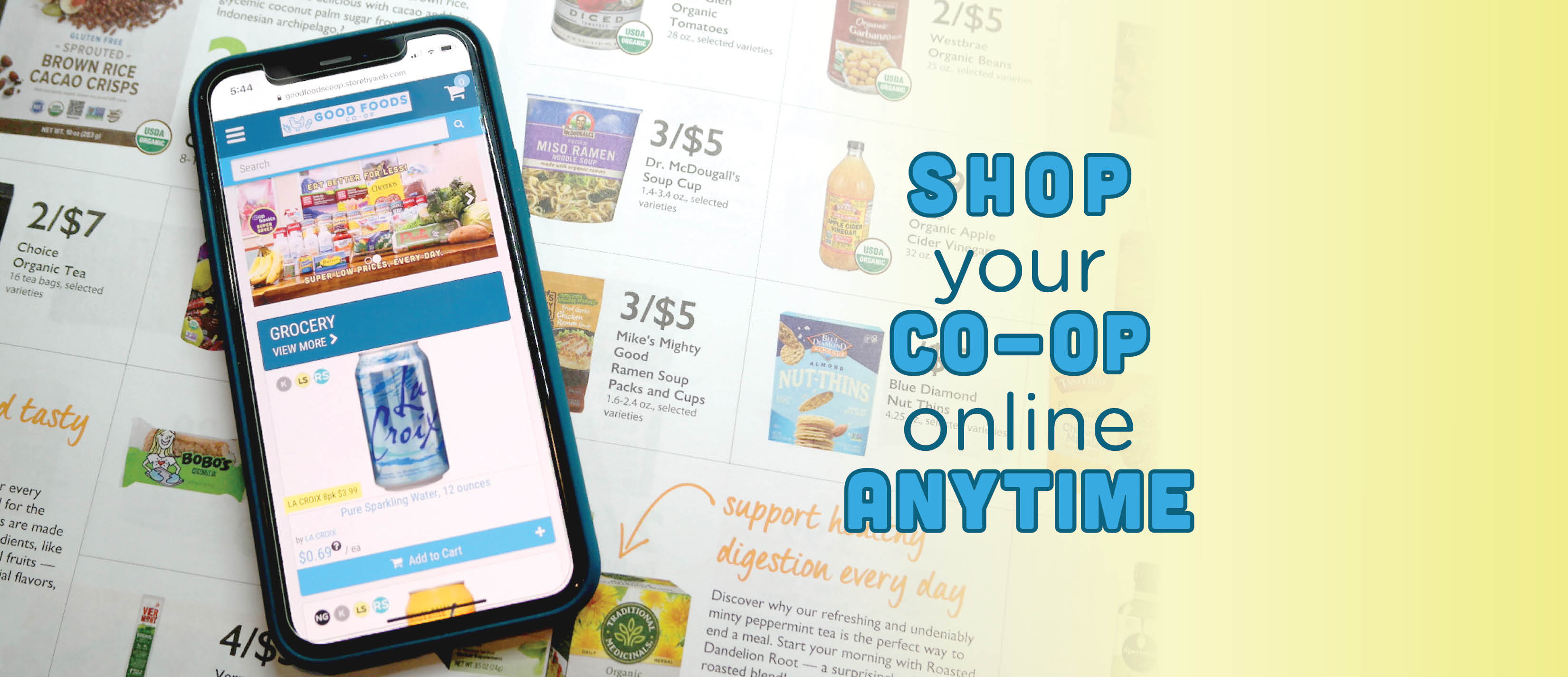
By: Mac Stone, Farmer & Owner, Elmwood Stock Farm
Entering a global pandemic has a way of changing things. What we thought was important pre-pandemic may not be as important now. This is not just a game-changer, as being healthy at home is no game; seemingly overnight, being content with healthy at home is all that matters. An integral part of being healthy is what you eat, or don’t eat.
Entering a pandemic exposed the soft underbelly of the global food supply network, thought to be too big to fail. While the overall food system thankfully has only crumbled, so much of it seems so unnecessary when a strong local food system is in place. The founders of Good Foods Co-op started out by rearranging furniture in their living rooms to make space for a buying club to bring a steady supply of ‘good’ foods to others in the community. Now—with flaws in all of our inequitable systems under examination—is the time to build upon their vision.

Local Food’s Resiliency
The resiliency of the local food system cannot be understated. It depends on a bunch of folks, who know each other by name, to do the right thing. When the lockdown became evident, the scramble for food came hot and heavy, at the grocery stores and at local farms. People we have never seen before, or since, bought bags of meat from us at Elmwood Stock Farm, with no questions about price, much less how it was raised. We immediately assessed our ability to keep a steady supply available and increased bookings at the butcher for this year and next, to the extent we can supply.
Local farms’ ability to supply wholesome proteins is dependent on a handful of small-scale entrepreneurs who do the work of harvesting our meats. Were our butcher to close for a short period of time, like the huge slaughterhouses have, our animals would be a little bigger, but otherwise unfazed. (Actually, the chickens would be huge, but maybe that would be part of a new food-security program.)

Another example of the resiliency that can be built through commitment to a local food system: On the heels of the panic buying, we discovered homesteaders and survivalists were buying seeds like never before, but our long-standing suppliers of sweet potato slips, seed potatoes and seeds held our orders. Then egg cartons vanished right before our eyes as Big Food pivoted from restaurant to retail. We laid in a good supply of mis-printed cartons from another farm. Bags and packaging materials were selling out, too, but the folks at those companies don’t know us, so we’re riding out packaging with less supply than we’d like as bring your own bag is on hold for a while.
Across the region, CSA numbers spiked and farms—Good Foods, too— assembled electronic shopping carts and online ordering systems for customers to access healthful, locally-produced foods without too much exposure to too many people. In the grand scheme of things, we’ve found ourselves with a technically efficient system, but meeting customers face-to-face and receiving their kind words about the amazing meals they made with our food is lacking. Food is the common denominator among people, and the sharing of food, food stories and doorways enriches our society.
The Current Opportunity
Hell hath no fury like a Mother Nature scorned. We ignored her pleas to stop fouling our own nest, didn’t listen to her about things getting too hot too fast around here, and certainly looked past each other’s diet-related diseases. It took a global pandemic for her to get our attention.

The good ol’ days of ‘I want what I want when I want it’ entitlement mentality are no more. In charting a path forward, we can take cues from what we know about the natural world and build a safe, equitable and secure food system that fouls no waters and actually improves our health and well-being, while bringing economic stability to the Commonwealth.
Lockdowns have opened a lot of eyes that folks with the means to do so are not just questioning where the food is coming from, and whether it was responsibly raised, but also will it be there going forward and how can more people access it. Global pandemics have shown to have two, or three, years in their names, so now is the time to invest in farms and farmers to build a local foodshed that can withstand whatever happens next. Farmers markets, CSAs, and restaurant and retail partners, like our co-op, are amassing the human capital to build a more resilient and equitable food supply for our little patch of the world.
COVID-19 may ultimately lead us to building a safe, steady supply chain of wholesome foods from right here in the Commonwealth. Commitment is the key to resilience. Cooking whole foods at home is good for you, physically and mentally. Sourcing responsibly-raised ingredients helps small farmers and small businesses. Why strengthen a convoluted global supply chain when a tight, local one will do? Invest in local food systems. As Wendell Berry says, “Eating is an agricultural act.” Let’s make the founders of our Co-op proud and put our money where our mouth is.
—Mac Stone, Elmwood Stock Farm (and Good Foods Co-op owner)
Mac Stone and his wife Ann, along with Ann’s brother John Bell and father Cecil Bell, are the proud farmers of Elmwood Stock Farm, a sixth-generation, USDA Certified Organic farm in Georgetown, KY.
